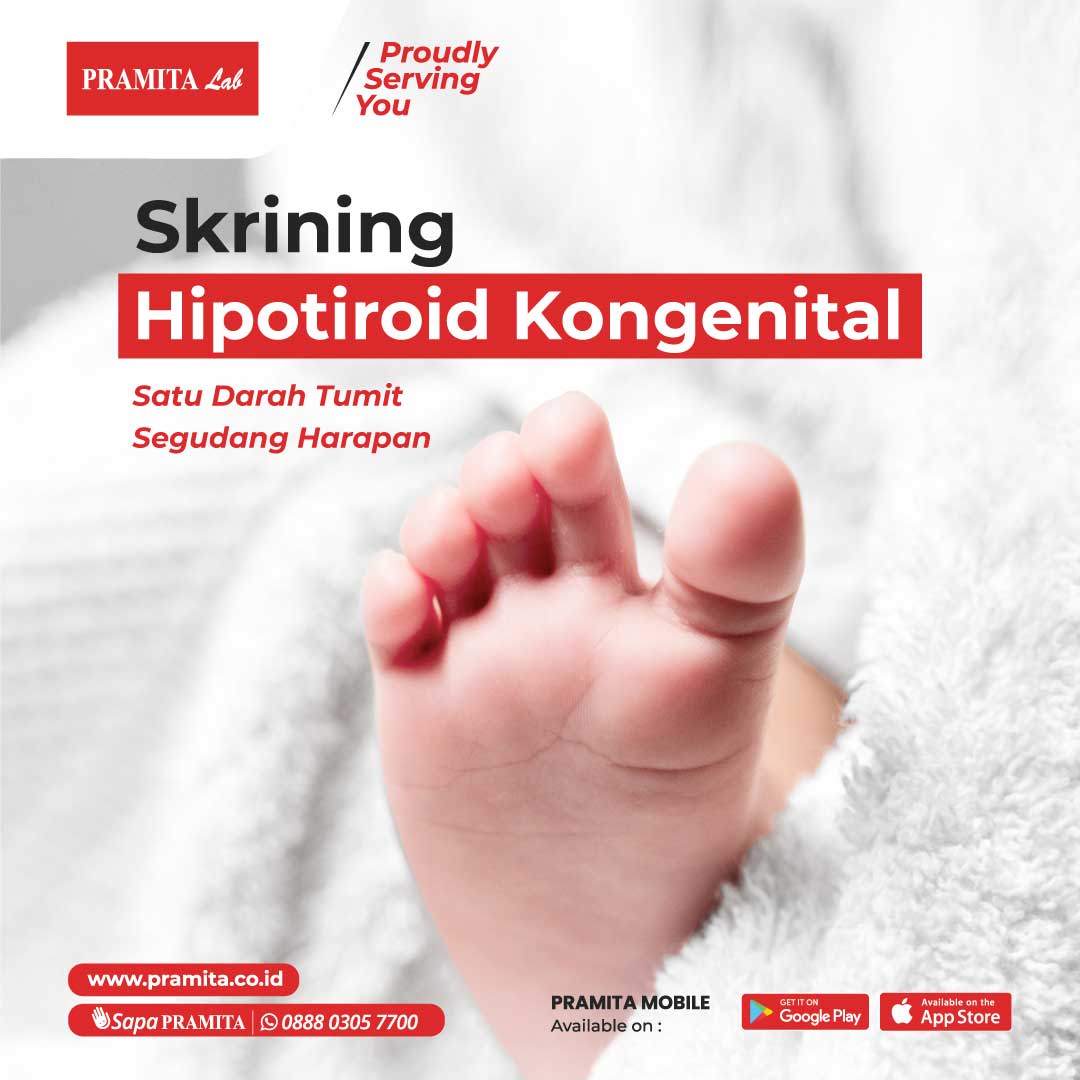Healthy Inspirations

CONGENITAL HYPOTHYROID (SHK) SCREENING
Wed, 17 Jan 2024"One Drop of Heel Blood, a Lot of Hope"
Congenital Hypothyroidism (SHK) screening is carried out on all newborn babies to detect early abnormalities in the thyroid gland that are present at birth, so that the baby gets treatment quickly and will not have a serious impact on the baby's growth and development.
Neonatal TSH examination
This examination is carried out as an initial step to diagnose, prevent neurodevelopmental disabilities and maximize the development of the baby.
This congenital hypothyroid disorder cannot be detected in the womb and there are no physical symptoms shown by the baby, so early detection when the baby is born is key.
This congenital hypothyroid disorder can cause decreased thyroid gland function in children. This disturbed thyroid hormone will inhibit the child's physical and mental growth, so congenital hypothyroidism is the only disorder that can be detected and treated early.
Congenital Hypothyroidism Screening is ideally carried out on babies aged 48-72 hours by taking a blood sample from the heel of the newborn baby and should ideally be treated before the baby is 2 weeks old.
Results and Suggestions
(Continued Check)
Neonatal TSH examination results that are higher than normal can indicate that the baby has congenital hypothyroidism. Babies with positive results require further examination to confirm the diagnosis of congenital hypothyroidism. When congenital hypothyroidism is confirmed, the baby will be directed to an endocrinologist for further treatment.
Consult the Right Doctor
If the results of the neonate's TSH examination show abnormal results, you can consult a doctor to get an appropriate diagnosis and therapy. If necessary, you can also consult with a Pediatrician regarding your baby's condition so that appropriate treatment and therapy is obtained.
Come on, pregnant women, don't forget to make sure your baby gets screened for congenital hypothyroidism at birth, okay? because one drop of heel blood is a wealth of future hope for our sons and daughters.
Author: Heri Prayugi (Technical Manager of PRAMITA Clinical Laboratory Branch Jl. Prof. Dr. HM. Yamin No. 92A-92E Medan)

